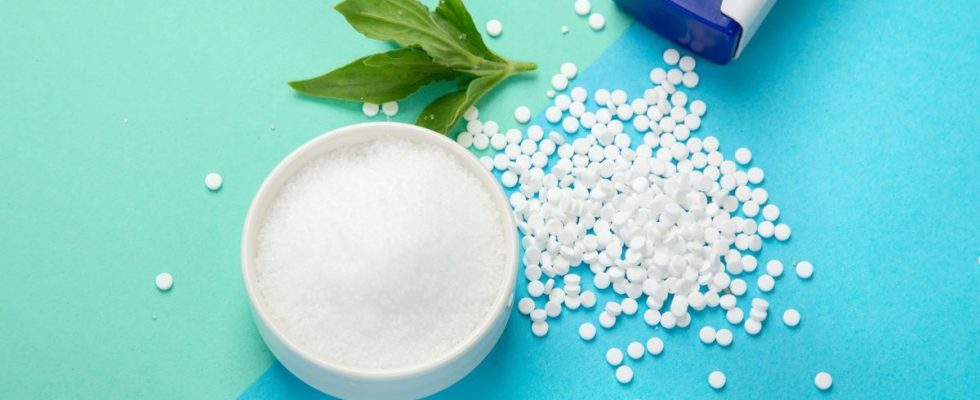Published on
Updated
Reading 2 mins.
According to a study conducted by American researchers, sucralose, a kind of sweetener, is harmful to our DNA. This would be linked to the production of a particular fat-soluble compound during its degradation, sucralose-6-acetate, also called E955.
Belonging to the family of sweeteners, sucralose leads to the production of sucralose-6-acetate, once digested in the stomach. It is this substance that would have a detrimental effect on our DNA, according to scientists from the University of North Carolina.
Sucralose is genotoxic
For the study, the researchers conducted a series of in vitro experiments exposing human blood cells to sucralose-6-acetate and monitoring for genotoxicity markers. “We found that sucralose-6-acetate is genotoxic and effectively disrupts DNA in cells exposed to the chemical” esays Susan Schiffman, study author and adjunct professor in the joint department of biomedical engineering at North Carolina State University and the University of North Carolina at Chapel Hill. “We also discovered that traces of sucralose-6-acetate can be found in standard sucralose, even before it is consumed and metabolized.” adds the scientist.
Exposure above the recommended thresholds
“To put this into context, the European Food Safety Authority has a threshold of toxicological concern for all genotoxic substances of 0.15 micrograms per person per day.” added Professor Schiffman.
“Our work suggests that traces of sucralose-6-acetate in a single daily sucralose-sweetened drink exceed this threshold. And that doesn’t even take into account how much sucralose-6-acetate is produced as metabolites after people consumed sucralose”.
Human intestinal tissues exposed to sucralose-6-acetate
In addition to blood cells, the experts exposed intestinal cells to sucralose-6-acetate. “Other studies have shown that sucralose can harm gut health, so we wanted to see what might be going on there.“says Professor Schiffman again. “When we exposed sucralose and sucralose-6-acetate to intestinal epithelial tissue – the tissue that lines your gut wall – we found that both chemicals caused a “leaky” gut.“” worries the scientist.
Concretely, these molecules make the wall of the intestine more permeable. The chemicals damage the “tight junctions” also called interfaces, where cells in the intestinal wall connect to each other.
“A leaky gut is problematic because it means things that would normally pass out of the body in the feces leak out of the gut instead and get absorbed into the bloodstream.”
Increased activity of intestinal cells exposed to this substance
Finally, the researchers also examined the genetic activity of the intestinal cells to see how they reacted to the presence of sucralose-6-acetate.
“We found that intestinal cells exposed to sucralose-6-acetate had increased activity in genes linked to oxidative stress, inflammation and carcinogenicity“Finally indicates Professor Schiffman who adds that “This work raises a host of concerns about the potential health effects associated with sucralose and its metabolites. It is time to review the safety and regulatory status of sucralose, as there is increasing evidence that it involves significant risks”.
Pending a change in regulations that she calls for, the scientist encourages people to no longer consume this sweetener, present in particular in Splenda® brand products.
